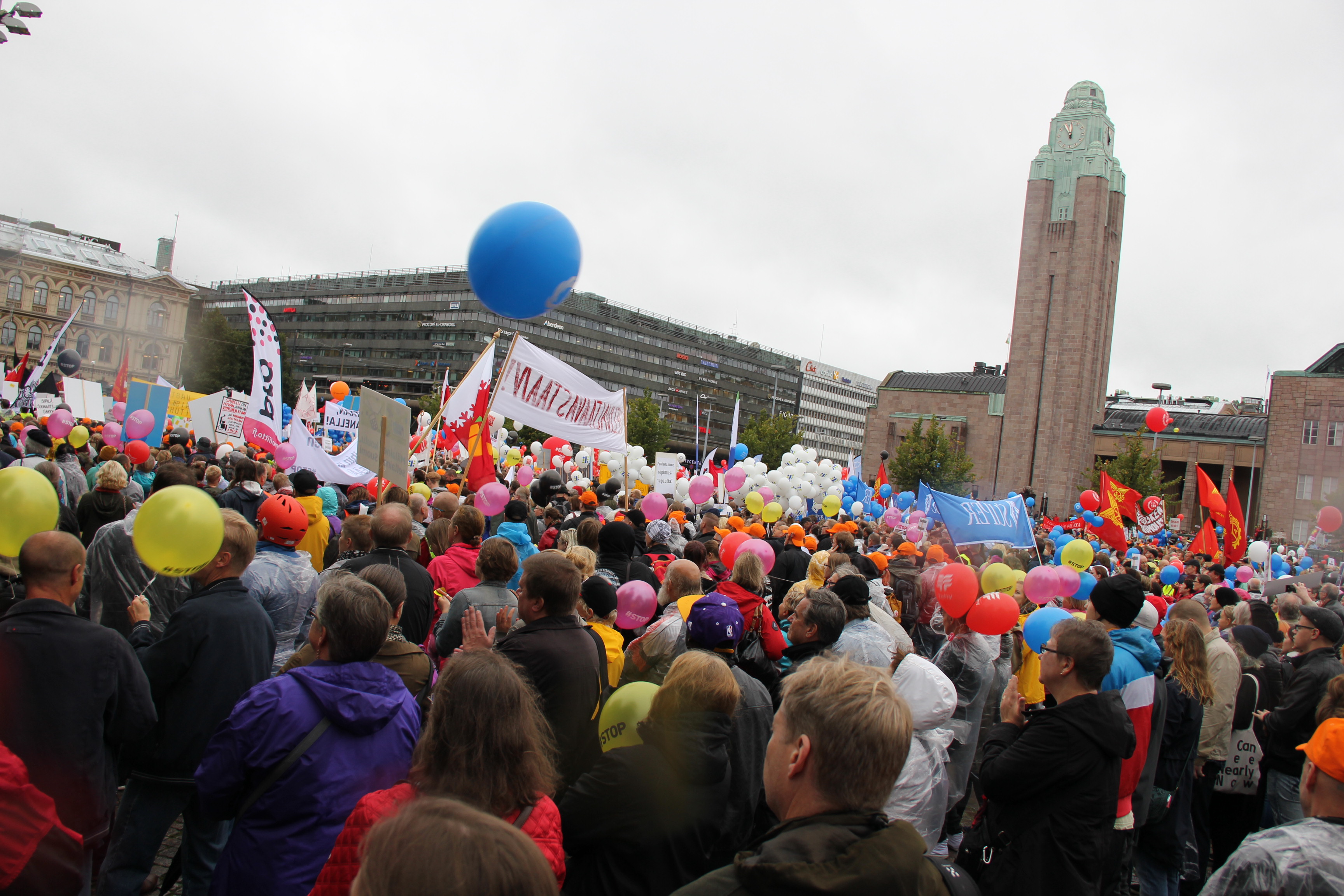
The demonstration organised by the three trade union confederations brought 30,000 people to Helsinki in spite of heavy rain. The main message was to defend the unions’ rights with regard to free collective bargaining and protest against austerity measures planned by the Government. In tandem with the demonstration on Friday 18 September public transport, trains, harbours and air traffic ground to a halt. Quite a number of shops, offices, day-care centres and many factories including paper mills also shut down. The total number of people who came out in protest against the Government measures was 300,000 around the country. The Government is planning to limit and cut by law the extra pay for week-end and night work. These cuts will hit low paid women especially hard.
– The Government proposal is extremely unfair, say the three trade union confederation chairpersons Sture Fjäder of Akava, Lauri Lyly of SAK and Antti Palola of STTK.
Government is giving the role of payer to those with medium and small incomes and especially women and those doing shift work, they say. The message from the confederations was at the same time a clear no to cutting trade union rights but also expressing a willingness to find a common way forward in negotiations.
Sture Fjäder said Akava took a stance to defend the freedom of agreement and the principle that laws should defend those who are weaker. Lauri Lyly was unambiguous in stating that SAK will not accept the cuts to extra pay for week-end and night work. However, he left a door open for the future tripartite negotiations by saying that SAK will not accept “unilateral” decisions on working hours.
Antti Palola called the Government plans a harsh attack against workers but said once more that STTK is ready for negotiations.
– We want to agree but we do not want be forced to give up our rights, he said.
Are the employers willing to negotiate?
The trade union confederations stress that they are not opposed to improving the Finnish economy. But measures should be even-handed and negotiated with all parties in the labour market. Even Prime Minister Sipilä showed some indication that there was a willingness to keep the door open for tripartite negotiations by saying that even other labour market measures than those planned by the Government are possible, if they are effective enough. Now everyone is waiting to see what the employers’ EK will do. Will they continue to hide behind the skirts of the right-wing Government, waiting for it to give them what they want, or are they ready to participate in open and fair negotiations? As Antti Palola pointed out:
– Negotiations are not held in front of a mirror but on a table with a negotiating partner.
Helsinki (20.09.2015 – Heikki Jokinen